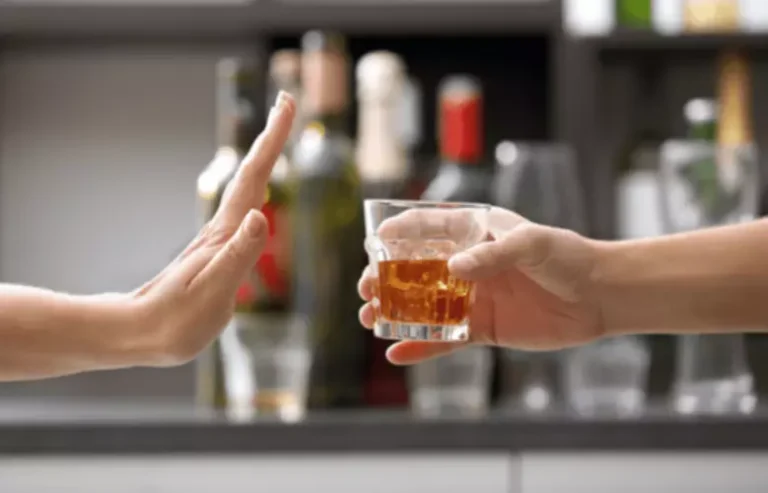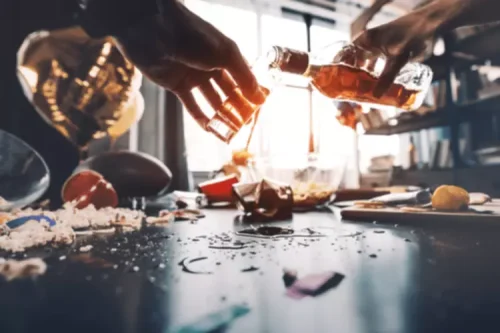
A “crazy drunk person” is one who drinks excessively and frequently due to alcoholism. Because they’re naturally predisposed to be angry when they drink, this becomes a key part of their personality because they can’t control their drinking or their temper. Suddenly, the person they know and care for is a much different, angrier person — short-tempered, abusive and often violent.

Cognitive Function
Studies indicate that alcohol is linked more closely with aggression than any other substance¹. Alcohol affects brain chemistry by altering neurotransmitters, which manage our mood and impulses. It decreases inhibition and can increase stress hormones like cortisol, making some individuals more prone to anger and aggression when drinking. Alcoholic rage syndrome refers to a pattern of intense anger and aggression triggered by alcohol consumption. This can range from verbal outbursts to physical violence, posing alcohol makes me angry a risk not only to the individual’s health but also to those around them. If you struggle with substance abuse, look into recovery programs.
- Empathy can decrease tension and improve interactions, reducing the chances of hostile encounters.
- If you’ve had episodes of hangxiety, the best way to prevent it from happening again is to avoid alcohol.
- This occurs in long-term relationships such as marriage, as well as all dating scenarios.
- CBT helps individuals identify and change thought patterns and behaviors that contribute to aggressive behavior when drinking.
- To stop being an angry drunk, you must first identify and accept that you have a problem.
The Connection Between Alcohol and Anger
Drinking alcohol can make us act in ways we wouldn’t normally, including being angry or aggressive. By Buddy TBuddy T is a writer and founding member of the Online Al-Anon Outreach Committee with decades of experience writing about alcoholism. Because he is a member of a support group that stresses the importance of anonymity at the public level, he does not use his photograph or his real name on this website. In a 2017 report, researchers shared their findings of the relationship between alcohol and dating violence.

Effects of Alcohol Abuse
- Anger is an emotion made up of many different feelings like dissatisfaction, displeasure, hurt, and frustration.
- Results showed enough escalation in people consuming these drinks to label the beverages a “potential risk” to increased hostility.
- Health issues such as kidney disease or liver disease can make you more prone to adverse effects of alcohol and more severe alcohol withdrawal symptoms.
- Admitting that you need alcohol addiction treatment and making the choice to reach out when you’re struggling can be difficult – especially if making progress means confronting your addiction.
- Outpatient treatment is less intensive than inpatient treatment or partial hospitalization programs.
- Developing healthy alternatives to drinking is another crucial aspect of preventing mean drunk behavior.
Landmark Recovery was founded with a Sobriety determination to make addiction treatment accessible for all. Through our integrated treatment programs, we’ve helped thousands of people choose recovery over addiction and get back to life on their own terms. We’re on a mission to save one million lives over the next century. We encourage all those struggling with substance use to seek professional help. If you’re experiencing recurring episodes of hangxiety when you drink alcohol, it could be a sign that you have an underlying mental health condition or alcohol use disorder. Anger management and alcohol treatment programs must recognize and educate participants about the relationships between alcohol and anger.
- It lowers your inhibitions, making it easier to express anger and irritation.
- So it’s not a matter of what specific drink makes you angry, but the nature of drinking itself that creates the cycle.
- Alcohol impairs your judgement, decision making and problem solving abilities, due to affecting the chemicals in your brain.
- But the best choice for you and the people around you is to enter treatment and work to become a better person.
This area of the brain is responsible for solving problems, managing emotions, and making sound judgments. If you follow true crime, you’ve heard about the notorious Murdaugh trials in South Carolina, with the latest being the trial of Alec Murdaugh convicted for killing his son and wife. And although nothing justifies murder, the son Paul Murdaugh was quite a character (and not in a good way).

It’s a complex interplay of biological predispositions, psychological factors, and social influences. Understanding this complexity is crucial for addressing alcohol-induced aggression effectively. It’s important to note that having a genetic predisposition doesn’t guarantee someone will become a mean drunk. Environmental factors and personal experiences also play significant roles. This interplay between nature and nurture is a recurring theme in the psychology of alcohol-induced aggression. Understanding the psychology behind mean drunk behavior is crucial for addressing this issue effectively.
Personality and the Propensity to Become Aggressive When Intoxicated
Even just a few drinks can completely change the way our neurotransmitters talk to one another. This communication disruption can wreak havoc on your frontal lobe’s decision-making, judgment, and executive control. Groups like Al-Anon or Al-Teen are available to help support people who have been affected by a loved one’s alcoholism. If anger is a symptom of someone’s mental health disorder, alcohol can intensify the anger to dangerous levels. Instead of being a natural emotion, someone with an alcohol use disorder (AUD) will express anger to avoid dealing with unpleasant or adverse circumstances, including the addiction.
What’s Behind the “Angry Drunk” Phenomenon.

Landmark will walk you through detoxing your body from alcohol and get you back on the right track. Contact Landmark Recovery today for more information about our detox, outpatient, and alcohol rehab inpatient services. Think of the last time you or an angry-drunk friend interpreted someone else’s actions as insulting and getting into a fight when the whole thing could have been avoided. They say the best way to predict future behavior is to look at past behavior. Look at your own or a friend’s behavior and see if this kind of behavior is a pattern or not. This infographic summarizes data on alcoholism and anger and the rates at which violent offenses involved alcohol use.